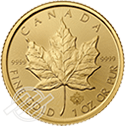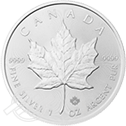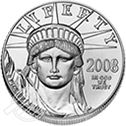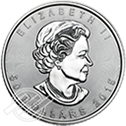The Benefits of Investing in Precious Metals
You have more choices than ever for growing your money as an investor. So much so that the options can feel overwhelming.
While most investors turn to stocks, mutual funds, exchange-traded funds (ETFs), and high-yield savings accounts as their primary drivers of wealth, there’s another option you may not have considered: precious metals.
Why consider investing in precious metals? Here are just a few reasons:
- Precious metals are valuable because they’re scarce.
- Precious metals often have uses in industrial processes, which helps preserve their value.
- Precious metals often have complex relationships with currency values that can prove lucrative.
While buying precious metals for your investment or retirement portfolios can be an excellent way to diversify your holdings, it’s not a decision you should take lightly. Let’s walk through the types of approved precious metals available for purchase, why they’re an excellent fit for investments, and a few factors to take into account before buying.
Types of Precious Metals
Most precious metals buyers focus on gold as their primary vehicle for investment because it’s the most visible and popular. However, it’s not the only approved precious metal. There are four types of precious metals you can purchase as part of a Gold IRA or on their own:
- Gold: Arguably the most recognized precious metal, gold is highly valued for its lustrous yellow appearance and resistance to tarnish and corrosion. Societies have used gold throughout history for jewelry, currency, and—more recently—electronics (because of its excellent conductivity).
- Silver: Another popular precious metal, silver is recognized for its bright white color and shine. While more abundant and less expensive than gold, it’s still remarkably valuable. Like gold, silver has uses in jewelry and coinage. It’s also essential for industries like photography, electronics, and medicine because of its unique properties.
- Platinum: Platinum is a rare, silvery-white metal that’s more durable and corrosion-resistant than gold. Many people recognize platinum for its use in jewelry. Still, its high melting point and catalytic properties make it valuable in industrial applications, nowhere more apparent than the automotive industry’s use of platinum for catalytic converters.
- Palladium: Another lustrous white metal, palladium resembles platinum but is less dense and has a lower melting point. It has many of the same applications as platinum, including in jewelry and automotive catalysts. Palladium’s value has significantly increased in recent years due to high demand and limited supply.
7 Precious Metals Investing Benefits
Why invest your hard-earned money in precious metals? As it turns out, there are quite a few reasons. From portfolio diversification to owning tangible assets, precious metal investors typically enjoy the following benefits.
1. Precious Metals Are Tangible Assets.
One of the most important benefits of investing in precious metals is that they’re tangible assets you can hold. Unlike stocks or digital assets (like NFTs), you can purchase precious metals as coins, bullion, jewelry, or bars.
Although investing in Gold IRAs requires you to place your precious metals in the custody of a third party, you can typically visit and see your investment. If you buy precious metals to hold outside an IRA and want to maintain possession of those metals in a safe place, you can do that, too.
2. They Typically Hold Their Value.
Precious metals tend to hold their value well because they’re scarce, fixed resources. Because of their scarcity, it’s doubtful that precious metals will lose their value over time. They’re also durable. Because precious metals resist corrosion and tarnish, they can last indefinitely without losing aesthetic appeal or physical properties.
There’s also an element of cultural and historical significance. Gold and silver have been used for centuries in jewelry, coinage, and other forms of wealth. This lends them a certain cultural cachet.
3. They Have Many Uses.
Nearly all precious metals have some practical application in various industries. In addition to their use as currency and trade, they’re critical to the jewelry, medical, electronics, and automotive industries. The odds are high that there will always be some demand for them.
4. Precious Metals are Easy to Purchase.
It’s never been easier to purchase precious metals, such as coins or bars. Whether you want to buy coins as a component of your retirement fund or to hold onto them, Advantage Gold can help facilitate that purchase by linking you with trusted suppliers.
5. Precious Metals Help Diversify Your Portfolio.
Putting all your eggs in one investment basket could open you up to vulnerabilities, like market downturns. Diversifying your portfolio by placing some of your assets into precious metals can reduce your overall risk. Even if one segment—like stocks—underperforms, you may see minimal movement in your Gold IRA. You might even see gains, depending on how prices move.
6. Precious Metals Hedge Against Inflation.
Another reason to invest in precious metals? Many view them as a safe haven investment that helps hedge against inflation and currency fluctuations. Whereas stocks and bonds might increase or decrease with market trends, precious metal prices typically stay steady.
7. Precious Metals Are Typically Liquid.
Most investors consider precious metals a “liquid” asset for several reasons. For starters, they’re typically traded on global markets. That means there’s usually a buyer somewhere willing to purchase them. Precious metals like gold and silver are commodities, which means they have standardized pricing. Because they’re physical objects, you can sell them directly to dealers or individuals. While it might take slightly longer than selling stocks or bonds, you still have reasonably quick access to cash.
While precious metals have consistent demand due to their uses in jewelry, industry, and as a store of value, it can take time to convert them into cash. Factors that influence this speed include the metal’s form, current market conditions, and the size of the transaction.
Disadvantages of Investing in Precious Metals
Like any investment, purchasing precious metals does have some drawbacks. These disadvantages could influence your decision to buy gold, silver, or other metals. Weigh the following cons before you decide:
- Potential high costs: Gold and silver purchases include commission fees. And those commissions can exceed those of other investments.
- Storage requirements: You’ll need to consider storage for your precious metals, whether that’s in a fireproof safe at home or via a third-party storage solution. Gold IRAs require your precious metals to sit with an approved custodian to avoid tax penalties. You’ll also need to insure the precious metals. Storing your physical precious metals in a safe deposit box at a bank is another option, but that opens you up to liability if the bank fails or you can’t access it because of an emergency.
- Liquidity: While physical metals are liquid assets and have been used as currency in the past, you can’t use them to buy groceries or gasoline. You’ll have to convert them to currency, which could take time.
- Taxes: The IRS considers gold and silver bullion collectibles, which means you could pay capital gains taxes on them. Placing these assets in a tax-deferred self-directed IRA can help avoid tax penalties, but that ties them up from easy liquidation.
- Lack of income or interest: One of the most significant drawbacks to gold, silver, and other precious metals is the lack of income growth from interest or dividends. Because gold is a store of value, its monetary worth comes from the money you receive when you sell it. Consider other options if you want an investment that draws interest.
Are Precious Metals the Right Investment for You?
Once you’ve weighed the pros and cons of buying precious metals, it’s time to decide: Will you invest in a diversified portfolio? Buying precious metals is a straightforward process, but it is one that you should carefully consider.
If you have questions about how to put your money to good use in a precious metals IRA, Advantage Gold can help. Download our free guide to opening your Gold IRA today.
Precious Metal Benefit FAQs
What are the advantages of investing in precious metals?
Buying precious metals offers several advantages. Many consider them safe haven assets that hedge against economic uncertainty and volatility. They also carry intrinsic value due to their scarcity and wide range of industrial applications. Finally, precious metals present the opportunity for price appreciation over time, especially during inflationary periods.
How do precious metals protect against inflation?
Precious metals like gold or silver have long been considered a hedge against inflation. As the cost of goods and services increases, the value of money decreases. Precious metals often retain their value or even increase during inflationary periods because they are priced globally in U.S. dollars. As the dollar’s value decreases because of inflation, metals’ costs tend to rise.
Why is diversification important in investing?
When you place all your eggs in one basket, you open yourself up to significant losses if that investment performs poorly. Diversification spreads risk across many different investments. Diversifying your portfolio mitigates volatility and provides a more stable return over time.
What are the ways to invest in precious metals?
You have several different ways to invest in precious metals. You can purchase them outright with physical bullion—bars or coins made from gold, silver, platinum, or palladium. You can also buy shares in ETFs that track the metals’ prices. You can also invest in mutual funds or buy futures contracts. Finally, you may also invest in the mining companies themselves.
How easy is it to purchase precious metals?
Buying precious metals is relatively straightforward, especially if you partner with Advantage Gold. We can help connect you with reputable sellers. If you prefer to go the ETF or mutual fund route, you can buy and sell through brokerage accounts. Research and understand the pricing, storage, and potential risks before purchasing.



